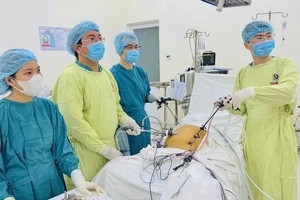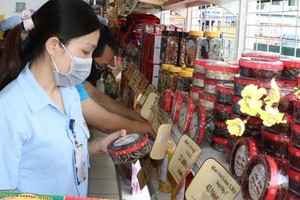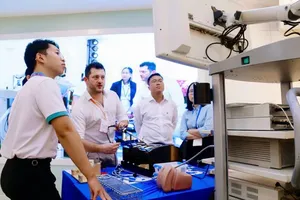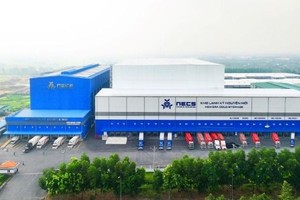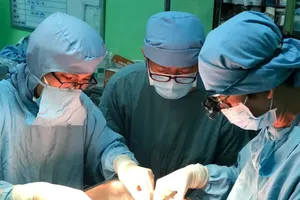
With treatment costs starting from just VND19 million (US$733) for fresh embryo transfer In Vitro Fertilization( IVF) and VND29 million for frozen embryo transfer IVF, the center aims to serve low to middle-income couples in the western part of Ho Chi Minh City who are longing for a child.
According to Dr. Ly Thien Trung, Head of the Reproductive Support Unit at IVF Quoc Anh Center, many people previously considered IVF to be an expensive treatment. This cost perception often poses a significant barrier for infertile patients facing financial difficulties.
At IVF Quoc Anh, doctors consistently evaluate and select appropriate treatment protocols to maximize cost reduction for patients while maintaining the best possible treatment effectiveness.
Dr. Nguyen Thi Ngoc Phuong, a trailblazing physician who first introduced in vitro fertilization (IVF) techniques to Vietnam, emphasized that advanced medical technologies should not be reserved for the wealthy. Instead, the objective is to make these treatments accessible to low-income couples as well.
'If couples have been trying to conceive for one or two years without success, they should seek medical advice early', urged Professor Dr. Nguyen Thi Ngoc Phuong . She advised couples not to wait because female fertility declines with age, and delays can reduce the chances of successful conception.
According to Ministry of Health data, around 7.7 percent of Vietnam’s population experiences infertility. The high cost of treatment, combined with a lack of health insurance coverage, remains a major obstacle. This burden disproportionately affects general laborers—factory workers, farmers, and freelancers—who often cannot afford IVF services despite a strong desire to have children.
